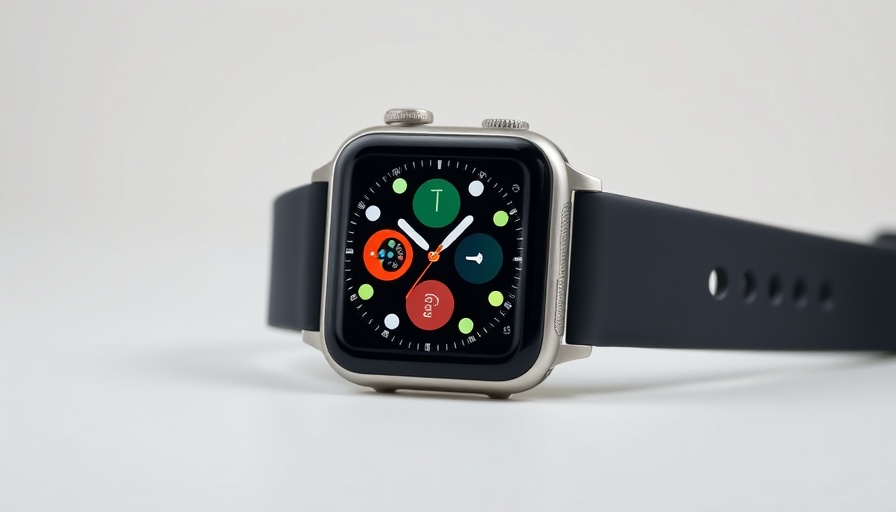
Apple's Carbon Neutral Claims Under Scrutiny
In a ruling that has caught the attention of tech enthusiasts and environmentalists alike, a German court has declared that Apple cannot label its Watch Series 9 and Series 10 as "carbon neutral." This decision follows Apple's promise two years earlier to make these products carbon neutral throughout their lifecycle—claiming no contribution to global warming. However, the court found fault with the company’s reliance on carbon credits sourced from tree-planting projects, casting doubt on Apple's sustainability commitments.
Unpacking the Ruling
The lawsuit, brought forward by the German environmental group Deutsche Umwelthilfe (DUH), focused on Apple's use of carbon credits obtained from eucalyptus trees in Paraguay. The court identified a critical flaw: three-quarters of the project area is leased land with agreements expiring in 2029. The judges highlighted that consumers might unreasonably assume these carbon offset forests would remain intact until the year 2050, as per the long-term goals outlined in the Paris Agreement.
The Implications for Apple's Image
Apple has long marketed itself as a leader in sustainability, with lofty goals for carbon neutrality across its entire supply chain by 2030. The recent court ruling poses significant implications for the tech giant's corporate image. While Apple continues to emphasize its commitment to reducing emissions through innovative approaches in clean energy and low-carbon designs, this legal setback shines a spotlight on the complexities of carbon offset strategies. As consumers become more environmentally conscious, the accuracy and credibility of such claims are under increasing scrutiny.
Consumer Trust and Corporate Responsibility
The court's assertion that "consumers would assume that CO2 compensation is secured" reflects a growing expectation among the public regarding corporate transparency. In the tech industry, where sustainability is becoming a pivotal factor in purchasing decisions, misleading claims can severely tarnish a brand's reputation. A study from the Environmental Protection Agency (EPA) shows that 73% of millennials are willing to pay more for sustainable products—suggesting that businesses must be held accountable for their environmental claims.
Exploring the Future of Carbon Neutrality
Looking ahead, the broader conversation surrounding carbon neutrality is shifting. As companies, including Apple, strive to align themselves with consumer expectations and regulatory demands, the future of carbon offset projects will likely require more rigorous long-term commitments and oversight. This is not just about planting trees or purchasing credits; it involves a more integrated approach to sustainability, considering the entire lifecycle of a product and its potential environmental impacts.
Conclusion: A Call to Action for Consumers
This ruling serves as a critical reminder for consumers to scrutinize corporate claims about sustainability. As technology continues to evolve, so do the standards for environmental accountability. Engaging with brands on their sustainability practices will not only drive better business practices but will also contribute to the global goal of reducing carbon emissions. For those invested in the tech world, now is the time to advocate for greater transparency and to demand that companies like Apple deliver on their promises.
 Add Row
Add Row  Add
Add 



Write A Comment